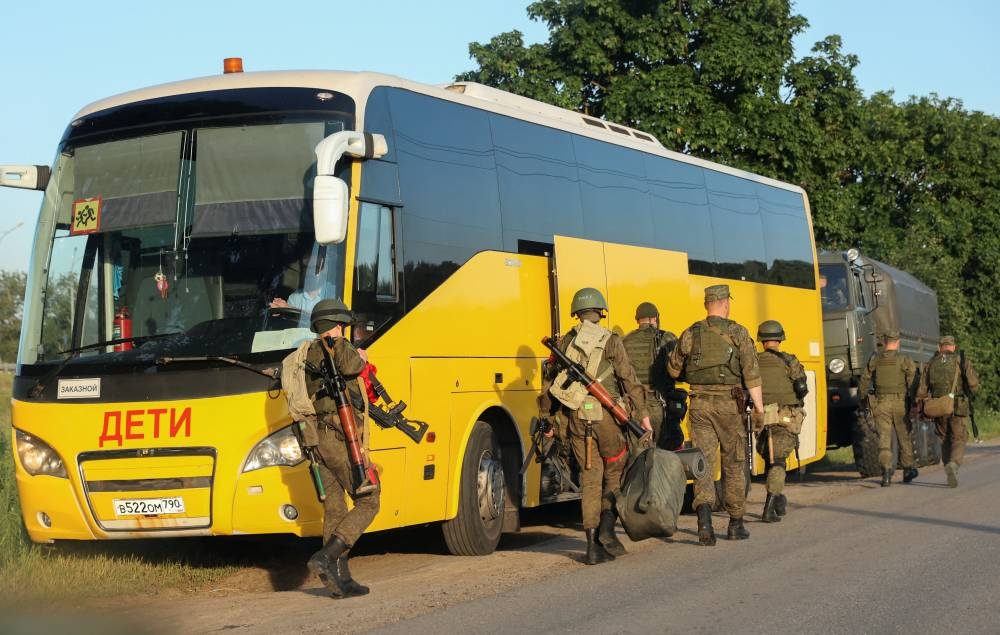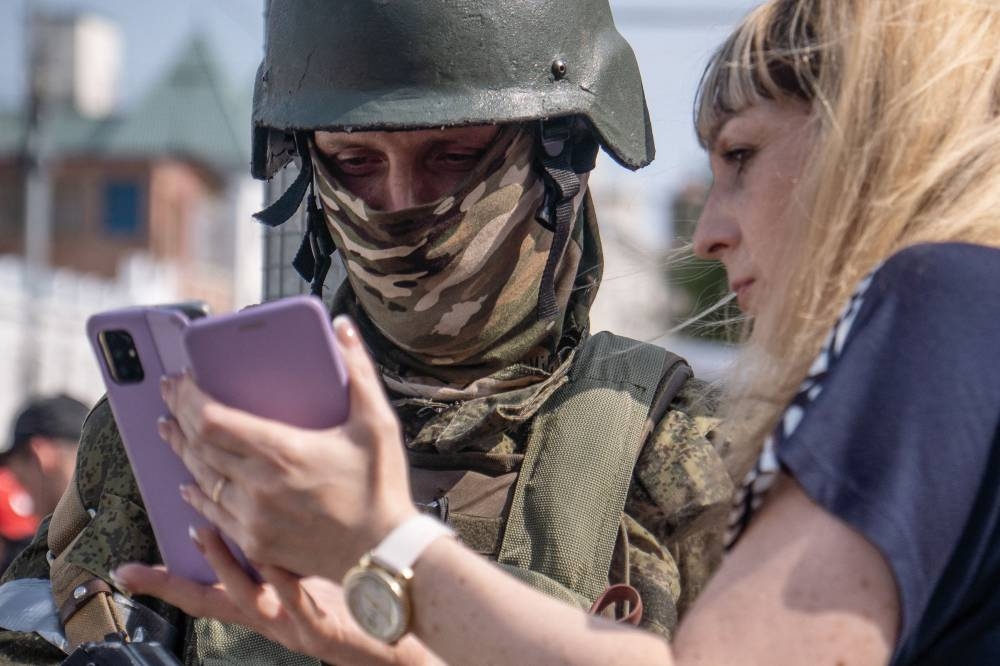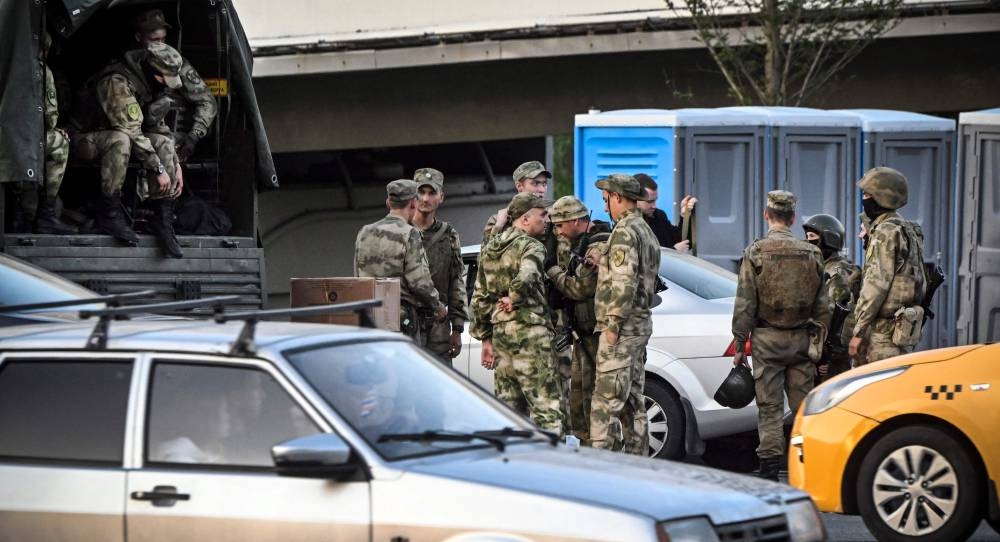Countries around the world were closely watching events unfolding in Russia Saturday as members of the Wagner paramilitary group advanced towards Moscow in the most serious challenge yet to President Vladimir Putin's rule.
Here is what governments are saying about the extraordinary situation taking place in nuclear-armed Russia.
Ukrainian President Volodymyr Zelensky said the Wagner mutiny showed Russia's "full-scale weakness".
"Russia's weakness is obvious. And the longer Russia keeps its troops and mercenaries on our land, the more chaos, pain, and problems it will have for itself later," he said in a statement on social media.
Deputy Defence Minister Ganna Malyar said the rebellion provided a "window of opportunity" for Kyiv on the battlefield.
US President Joe Biden was briefed on the situation in Russia and Washington and "will be consulting with allies and partners on these developments", National Security Council spokesman Adam Hodge said.
European Union chief Charles Michel tweeted that the bloc was "closely monitoring the situation in Russia as it unfolds. In touch with European leaders and G7 partners".
"This is clearly an internal Russian issue," he wrote, adding that "our support for Ukraine" remains "unwavering".
The bloc's diplomatic chief Josep Borrell said the EU was in "permanent contact with our ambassador in Moscow and continuing our internal consultations with our member states".
Borrel said foreign affairs ministers of the G7 nations held a call to "exchange views" on the situation.
Nato spokesperson Oana Lungescu said the alliance was "monitoring the situation".
Nato member Lithuania's President Gitanas Nauseda said on Facebook that while the mutiny may offer respite to Ukraine, Russia's neighbours need to "prepare for the most unexpected scenarios." Lithuania's Foreign Minister Gabrielius Landsbergis tweeted: "For 100 years Lithuanians have lived on the edge of Moscow's brutal banditocracy, knowing it's only a matter of time before the next chaotic implosion".
The "time is now" for "victory and justice for Ukraine", he added.
British Prime Minister Rishi Sunak urged "all parties to be responsible and to protect civilians." Czech politicians used the mutiny to take a stab at Russia's leadership.
"I can see my summer holiday in Crimea is approaching," said Foreign Minister Jan Lipavsky, referring to the territory annexed by Russia from Ukraine in 2014.
Austrian Chancellor Karl Nehammer, who has met with Putin since the launch of the Ukraine war, warned of the nuclear risks of the instability in Russia.
Events in Russia "are always of the utmost importance, because the Russian Federation has a great potential for biological, chemical and nuclear weapons", he said.
Leaders in Berlin, Paris, Stockholm, Norway and Brussels all said they were keeping close watch on the situation in Russia.
French President Emmanuel Macron discussed the Wagner rebellion's "possible impact" on the war in Ukraine with leaders including US President Joe Biden his office said.
Turkish President Recep Tayyip Erdogan, who has proffered himself as a mediator between Russia and the West, offered to help seek a "peaceful resolution" to the armed rebellion in a phone call with Putin, his office said.
A senior adviser to the UAE President, Anwar Gargash, said: "In light of the serious developments taking place in Russia, the need for a political solution that addresses the Ukrainian crisis and its repercussions has become more urgent." Israeli foreign minister Eli Cohen advised citizens to avoid travelling to Russia, adding: "We are preparing for any scenario".

Russian service members move into positions, as part of a counter-terrorist operation declared after an armed mutiny by the Wagner mercenary group, in the Moscow region, Russia, June 24. A sign on a bus reads: "Children". REUTERS/Stringer

A woman shows her mobile phone as she speaks with a member of the Wagner group in the city of Rostov-on-Don, on June 24. Roman ROMOKHOV / AFP

Russian soldiers stand an the edge of one of the a highways entering Moscow on June 24, 2023. Alexander NEMENOV / AFP
